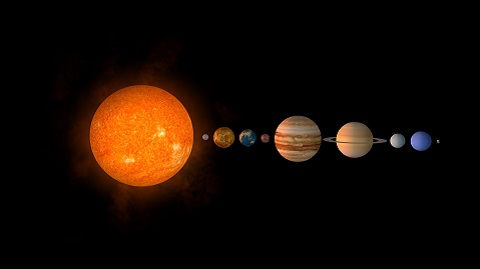"What on Earth do Jupiter, Mars, and Venus have to do with climate and carbon cycling?" at the ICTA-UAB María de Maeztu Seminar Series

18/04/2017
Geologic records across the globe show prominent variations on a 20,000- to 400,000-year time scale during numerous epochs going back hundreds of millions of years. The origin of these so-called Milankovic cycles are variations in orbital parameters of the bodies of the solar system. On long time scales, the orbital variations cannot be computed analytically because of the chaotic nature of the solar system. Thus, numerical solutions are used to estimate changes in, e.g., Earth's orbital parameters in the past. The orbital solutions represent the backbone of cyclostratigraphy and astrochronology, tools widely used in geology and paleoclimatology. Hitherto only two solutions for Earth's eccentricity appear to be used in paleoclimate studies, provided by two different groups that integrated the full solar system equations over the past >100 Myr.
In his presentation, Richard E. Zeebe will describe the basic physics behind, and new results of accurate solar system integrations for Earth's eccentricity over the past hundred million years. He will discuss various limitations within the framework of present simulations and compare the results to existing solutions. Furthermore, he will present new results from practical applications of such orbital solutions in paleoclimatology, including effects of orbital forcing on coupled climate- and carbon cycle variations. For instance, one of our recent studies revealed a mechanism for a large lag between changes in carbon isotope ratios and eccentricity at the 400,000-year period, which had been observed in Paleocene, Oligocene, and Miocene sections. Finally, he will present the first estimates of orbital-scale variations in atmospheric carbon dioxide during the early Paleogene.
Dr. Richard E. Zeebe is a faculty member at the University of Hawaii. His research focusses on the global carbon cycle, biogeochemistry, geology, paleoceanography, astrochronology and more. His interests range from the physico-chemical properties of molecules and the biogeochemistry of foraminifera to the scale of the global ocean and the solar system. Together with Wolf-Gladrow he published a book on the CO2 chemistry in seawater which has been referred to as the CO2 survival kit. Dr. Zeebe received a Ph.D. in Physics from the University of Bremen, Germany. He has served as editor of the journals Climate of the Past and Paleoceanography.